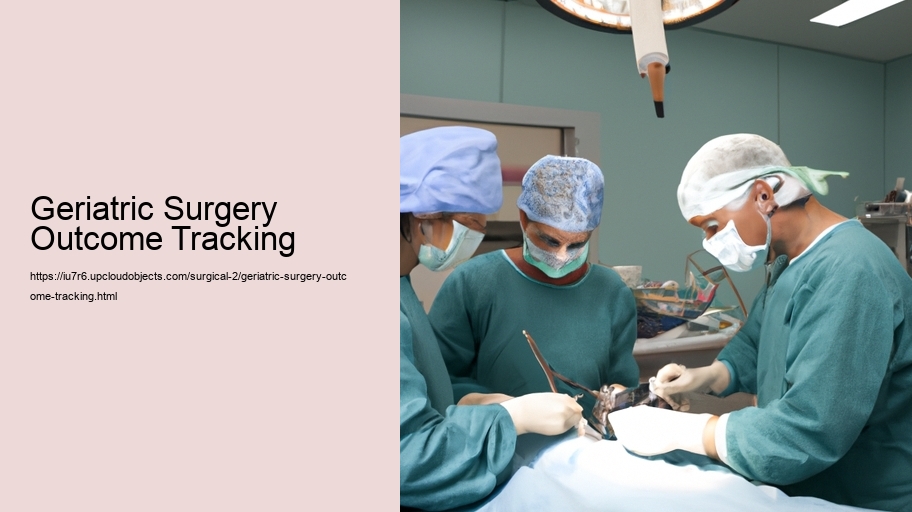Geriatric Surgery Outcome Tracking: A Critical Tool for Improving Elderly Patient Care
As our global population continues to age, the demand for surgical interventions among the elderly is on the rise. This demographic shift requires a specialized approach to healthcare, one that takes into account the unique needs and challenges faced by older patients. Geriatric surgery outcome tracking emerges as a crucial component in this context, providing insights and data necessary for tailoring surgical care to improve outcomes for the elderly.
Geriatric surgery outcome tracking refers to the systematic monitoring of results following surgical procedures in older adults. It involves collecting and analyzing data on various parameters such as patient demographics, type of surgery, anesthesia used, length of hospital stay, postoperative complications, mortality rates, and long-term recovery. By examining these factors, healthcare providers can identify trends, potential risks, and areas for improvement in the care of geriatric patients.
One of the primary reasons for tracking outcomes in geriatric surgery is to understand the impact of age-related physiological changes on surgical risks and recovery. Older patients often have multiple comorbidities, such as hypertension, diabetes, and cardiovascular disease, which can complicate surgery and postoperative care. Additionally, the aging process can affect the body's response to anesthesia and its ability to heal, making older adults more susceptible to complications.
By meticulously tracking surgical outcomes, surgeons can develop risk assessment tools and protocols that cater specifically to the elderly population. For instance, preoperative assessments can be enhanced to better predict an individual's risk of adverse events. This enables the surgical team to implement tailored strategies to mitigate these risks, such as choosing less invasive procedures or optimizing pre- and postoperative management of chronic conditions.
Moreover, geriatric surgery outcome tracking serves as a feedback loop for continuous improvement in patient care. It allows healthcare professionals to evaluate the effectiveness of interventions and to adjust their practices accordingly. For example, if data reveals a high rate of postoperative delirium in geriatric patients, hospitals can introduce targeted measures such as enhanced recovery protocols, pain management improvements, and better monitoring of cognitive function.
An essential aspect of outcome tracking is the patient-centered approach. By considering patient-reported outcomes measures (PROMs), which include factors such as quality of life, functional status, and patient satisfaction, healthcare providers can gain a more holistic view of the patient's experience. This insight is invaluable for informing decisions about care that align with the patient's goals and preferences.
Furthermore, geriatric surgery outcome tracking can inform policy-making and resource allocation within healthcare systems. By understanding the needs and outcomes of the elderly undergoing surgery, policymakers can prioritize investments in areas that will have the most significant impact on this vulnerable group. This could lead to the development of dedicated geriatric surgical units, specialized training for healthcare providers, and increased support for rehabilitation services.
In conclusion, geriatric surgery outcome tracking is more than just a means of collecting data; it's a powerful tool that drives quality improvement, patient safety, and personalized care for the elderly. As the number of older adults requiring surgical interventions continues to grow, the importance of outcome tracking will only become more pronounced. It is imperative for healthcare systems to embrace this practice, integrating it into the fabric of geriatric care to ensure that our aging population receives the best possible surgical outcomes.
